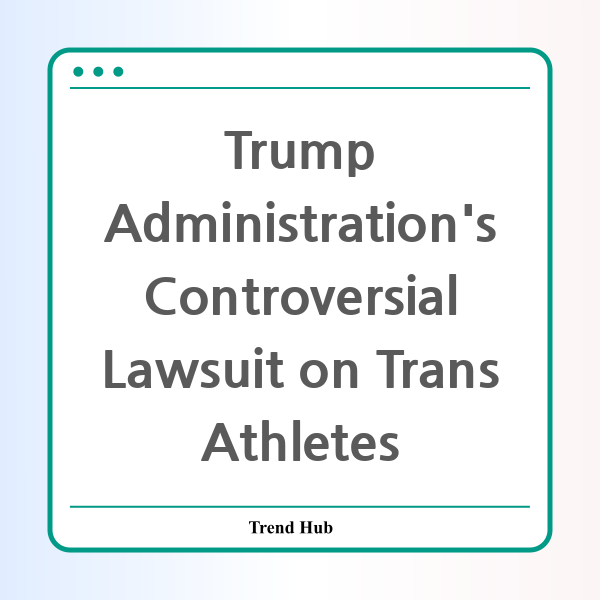* This website participates in the Amazon Affiliate Program and earns from qualifying purchases.

What happens when policy, politics, and sports collide? The latest controversy surrounding transgender athletes competing in girls' sports has escalated into a legal battle that is capturing national attention. With the Justice Department filing a civil suit against Maine, where Governor Janet Mills' administration has defended its right to allow transgender athletes to compete in accordance with their gender identity, the stakes have never been higher.
The lawsuit, announced by Attorney General Pam Bondi, alleges that Maine’s policies violate Title IX, claiming that they allow biological males to compete against female athletes. The Trump administration's stance on this sensitive issue serves to stoke political flames as they point to potential violations of women’s sports rights under federal law. The suit argues that such policies jeopardize the integrity of women's sports and diminish opportunities for female athletes. "By prioritizing gender identity over biological reality, Maine's policies deprive girl athletes of fair competition," the lawsuit states.
Bondi's campaign has attracted supporters from conservative circles, including activists who argue that allowing transgender women in female sports represents a direct threat to the rights of biological women. At a press conference, Bondi asserted that the Justice Department would protect women's rights in athletics and safeguard the fairness that Title IX was designed to ensure.
Yet, the situation is complex. Maine's Governor Mills has condemned the suit as an overreach by the Trump administration, asserting that the state is not violating any laws merely by accommodating the needs of transgender students. Mills argues that this battle happens under the pretense of protecting women's sports while simultaneously putting funding for essential school programs at risk. "Because there are two, maybe two, trans athletes competing in Maine schools right now, they decided to shut off funding for the school nutrition program, the school lunch program, entirely," Mills told reporters.
This is not just a legal battle; it's a reflection of a broader national conversation surrounding gender identity, inclusivity, and fairness in sports. Many states are wrestling with similar questions, and the outcome of this lawsuit could set a precedent that affects schools across the nation.
The increasing discord over this issue has emboldened advocates on both sides. Supporters of the policy changes argue that inclusion is critical in promoting acceptance and fairness for all individuals, while opponents assert that allowing transgender women to compete against biological women undermines the competition and safety of female athletes.
As these legal proceedings unfold, we can expect a heightened level of scrutiny on educational policies across the country. The debates sparked by the DOJ's lawsuit raise crucial questions about the balance between protecting rights and ensuring fair competition.
One thing is clear: the issue of transgender athletes in women's sports will continue to fuel discussions about gender, equality, and the future of athletics in America. As we watch this complex scenario unfold, it’s essential to consider the implications not just for athletes but for the foundational principles of sportsmanship and fairness that define competitive athletics.
In conclusion, amid the ongoing conflict between state and federal policies over transgender participation in sports, the ramifications extend far beyond the playing field. Sports should be a platform for equality, inclusion, and respect, but how that translates into policy will likely remain an enduring debate in both the political and social spheres.
* This website participates in the Amazon Affiliate Program and earns from qualifying purchases.